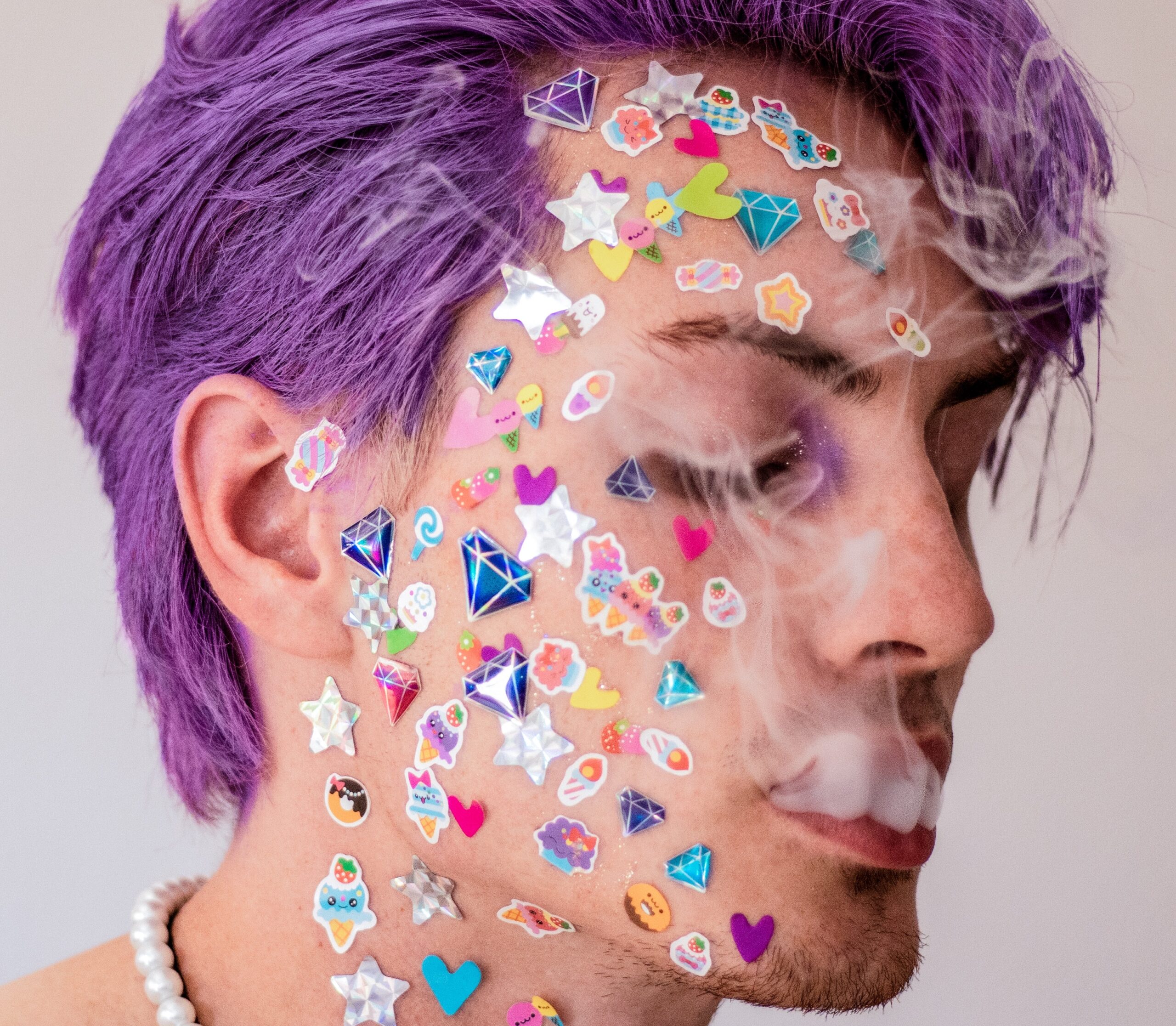Written by Aaron Beaumont.
Art by Tide Trasher X
Each year the transgender community knows to expect the headline “this year has been the deadliest year for trans people yet!”, but we still brace ourselves for this news as if we don’t experience it each day (some of us more than others).
Everyday, and I mean every day, I open my tired eyes to check Instagram and find that another trans life has been taken from us. Most often it is Black and Indigenous trans women and femmes who are taken too soon from this world. The collective grief is hard to describe. If you’re not a part of the trans community, you may not understand how the loss of someone you have never met, in another country, could possibly shake you to your core, but believe me it does. Trans Day of Remembrance is not only on November 20 each year, but it is every day for the trans community.
Trans Day of Remembrance is not only on November 20 each year, but it is every day for the trans community.
The concept of queer grief is being discussed more online and in academic spheres (see @queering_grief on Instagram), and although queer and trans grief can be connected and intertwined, trans grief is specific and needs to be discussed more within and outside of our communities. The most robust support network around transness and grief exists for parents when they “lose their child” when they come out as trans. There are lots of support groups, articles and discussions on how parents can deal with loss when their child is trans.
But what about the grief that comes with existing in an inherently transphobic world? What about grieving the losses we experience with coming out?
Not only are we grieving the loss of our community members and our rights each day, but being trans can come with many other aspects of grief. Some examples of trans grief include: the loss of support from family, friends, and community, discrimination and harassment, grieving time you spent in the closet, grieving your gender assigned at birth, grieving your changing body if you go through medical transition and so much more. T4T grief is a loss that is hard to describe, because T4T love is so special and unique.
T4T love is unapologetic, accepting, comfortable and joyful. T4T love allows me to be my authentic self without explanation, in a world that wants me to disappear. T4T love is not only about romantic and sexual relationships, trans platonic relationships are also an important part of these beautiful connections. T4T love and solidarity encompasses so many things like sharing clothes, sharing shaving and make up tips, reminders to take our hormones, tips on where to buy the best binder or gaff, sharing food, creating art together, ridesharing, fundraising for gender affirming care, sending each other money when we’re struggling and so much more. In a time of global crisis for trans folks, T4T love is more important now than ever, to help each other survive and thrive.
In a time of global crisis for trans folks, T4T love is more important now than ever, to help each other survive and thrive.
The communal loss is overwhelming, and we are not taught how to take the necessary time, space and support to deal with it. So when you lose trans love in your own personal life, it feels like the earth is crumbling beneath you. The rage and pain I already feel towards the cis het people who actively fight against our right to exist, becomes entangled with my own community. I’ve never dealt with loss of this magnitude like I currently am, on a communal and interpersonal level. Losing T4T love in a time of trans crisis feels like an undying fire. T4T love is a bond that feels unbreakable until it is broken.
The grief sometimes feels like drowning and my therapist tells me I have to let it pull me under in order to heal. I wish for healing for the trans folks who I’ve lost connections with. I hope that we can heal and come together to face the grief together, so none of us have to grieve alone.
I call my trans loved ones while we run errands together in different cities. I send packages to my trans friends in other countries to share trans joy and queer art. I collaborate with trans artists to create work for our community. I book tarot readings with trans folks who can explain how the planets reflect my gender nonconformity. I share trans art on social media that captures the complex feelings I can’t quite put into words on my own. I watch videos of trans folks putting on their first binder and doing their hormone shots each week. I give binders to my trans kin. I swap clothes with my trans friends. I ignore calls from my biological family and facetime my trans siblings instead.
I try my best to overwhelm myself with trans joy, trans laughter, trans power and trans excellence to offset the grief.
The grief has been here for generations, and will continue to come in waves. We just keep learning how to survive together despite it all.
(This essay was inspired by Kai Cheng Thom’s “I Hope We Choose Love” and personal loss)
About the Author
Aaron Beaumont (they/them) is a white, fat, disabled, queer and trans artist creating on Wolastoqiyik and Mi’kmaq territory under the penname ‘Steel Transplants’. Their multidisciplinary body of work includes themes of queer and trans identity, religion and family.
Follow on IG: @steel.transplants |

